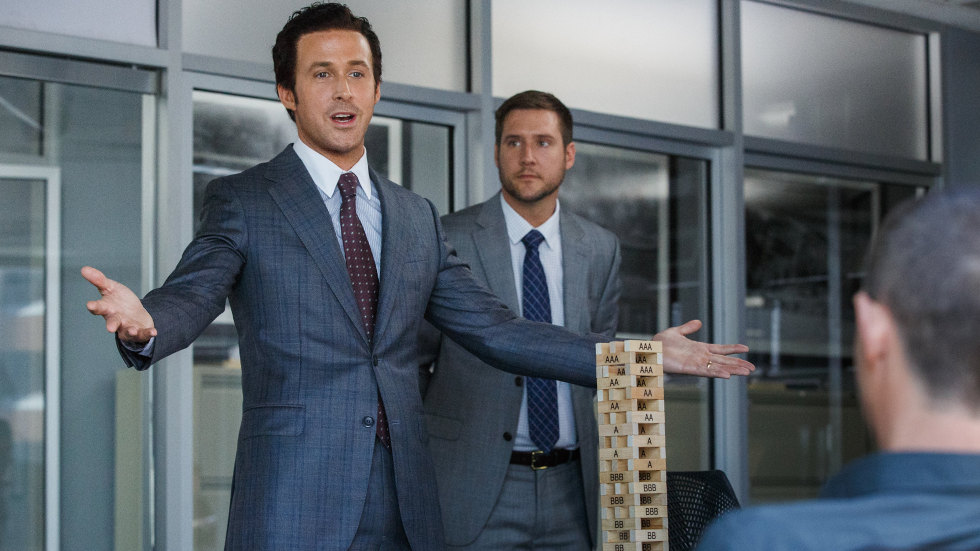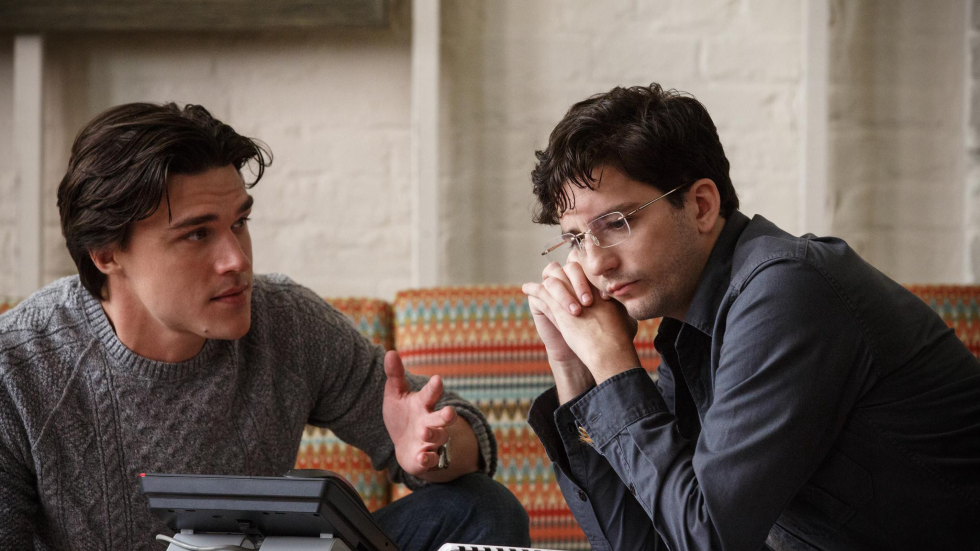Movie Review | The Big Short
- DB
- Oct 9, 2019
- 5 min read

Movie summary: In 2006-7 a group of investors bet against the US mortgage market. In their research they discover how flawed and corrupt the market is. (IMDb)
I wanted to see The Big Short when it was originally released in cinemas, but a lack of interest from friends and a plentiful supply of other movies meant it didn't happen. I then wanted to watch it on blu-ray or some other home version, but a lack of money and still more movies to watch meant that it slowly faded into memory until I saw it on the Netflix home page for some reason one day.
I don't know if it was trending because the world is heading for another recession in the near future (very near if Trump and friends continue to get their way), but I at least added it to my ever-expanding queue of things to watch and promptly forgot about it again. As a result, I have my randomiser to thank for picking this movie out for me and making me regret not watching it sooner.
The story is hardly one that can be spoiled, because The Big Short is heavily based on real people and the actions they took in the real world a little over a decade ago to take advantage of the collapsing US housing market and the global economic chaos that ensued. Is it all accurate? No, but the film makes a point to let you know how things really happened at various points.
There are multiple groups the story follows that never interact with each other despite all being involved in the exact same thing. You effectively get the same story with each, but all told from different angles so it never comes close to feeling repetitive and the nature of the characters involved giving each thread its own unique identity.
Michael Burry's (Christian Bale) thread is the most detached, although he is the person (both in real life and in the narrative of The Big Short) that kicks everything off and leads to the other plots happening at all. Burry sees that the US mortgage market is going to collapse, so bets against it in an unprecedented move and is screwed over repeatedly because of it.
His actions are discovered by Ryan Gosling's character, Jared Vennett, who aligns with Mark Baum (Steve Carell) and his group. Their prospectus explaining to disbelieving banks why they're doing what they are is found by the characters played by John Magaro and Finn Wittrock, who enlist Brad Pitt's character, Ben Rickert, to aid them.
As you can see, this is a pretty stacked cast, not even taking into account the cameos as themselves from Margot Robbie (in a bubble bath) to Anthony Bourdain explaining away various terms and scenarios in easily-digestible snippets. And these 'cutaway' sections aren't talking down to the audience either - more like a necessity for the incredible amount of finance industry jargon thrown at the audience almost non-stop throughout.
Make no mistake, The Big Short doesn't really want to hold your hand or wait for you to keep up - if those short explanations aren't enough for you to fully get what's going on, you could very easily get lost. That is, you could lose track if the characters we follow weren't so disbelieving of what's happening themselves that they ask for a lot of the more complicated details to be explained repeatedly.
That is a stroke of genius from the writers, Adam McKay (who also directed) and Charles Randolph, because not only does it help the audience to understand and follow exactly how one thing leads to another, it remains perfectly true to the characters who are having their worlds turned upside down even as they stand to profit from the coming disaster.

This leads to a lot of soul-searching for some of the characters, who are unsure or ill at ease about making so much money from the extreme misfortune of others. Whether this happened - at least to the extent portrayed here - is probably my biggest question mark about the accuracy to reality, but the fact that they all still go through with it does lend the idea a lot of credibility.
Gosling's character is probably the most stereotypical of the lot and what most audiences would expect from the kind of people who made money from this disaster. He's doing what he's doing to make himself a whole lot of money and doesn't care about who gets hurt down the line - he's simply taking advantage of the situation after all, he didn't cause it.
And it's that fuzzy grey area that makes The Big Short so amazing to me: all of the characters we see make colossal sums of money by taking advantage of a terrible situation and leaves it up to the audience to decide how they are perceived. Like Gosling's character, none of them caused this crisis and none of them had the power to stop it, so just how bad are they compared to the real architects of the financial apocalypse?
It's the ending that really hits the hardest though, detailing what happened following the events of the movie (and reality), with only one person going to jail and the bankers awarding themselves huge bonuses thanks to a government bailout that saved their companies and allowed the exact same systems that caused the problem to remain in place.
The Big Short is terrifying because it's a movie where the bad guys win, they win really big, and even the lesser evils win big too despite any reservations they may have. Just like what happened in reality, there is no happy ending to be found here. It's harrowing to watch and realise that the bad guys are still winning now and are looking to win even bigger in the near future. Or, to put it more simply: we're fucked.
This movie left me feeling just as sick and nauseous as Midsommar did, but without the need for cults and blood. It's incredible to say it, but this movie is deflating and depressing, despite how it just crackles with tension and nervous energy throughout. It's a little over two hours long, it feels about half as long to watch, and I think everyone should see this movie at least once.
The Big Short is an incredible movie which everyone should watch and be terrified by, as it's far scarier than any horror film could ever hope to be. The cast is perfect; the performances are just as good; and the whole thing flies by, even when stopping for some fun cameos to explain terms that general audiences won't know. Genuinely a modern classic.
[10/10]
Why a 10/10? Because it's important that as many people as possible know about this kind of subject, and I can't imagine how you could have taken the events that The Big Short covers and made it so simple to follow while still retaining so many details about what happened and why. I honestly can't think of any way this movie could've been done any better other than maybe having a more memorable score, but that could take away from the dialogue, which should never happen when it's such amazing material as this.










